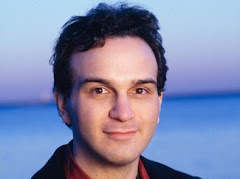A capacity audience was at the DFP Hall to witness the Malaysian debut of conductor Rossen Milanov. Given the predilection for Klang Valley Malaysians to go outstation for a long weekend, it was unusual to see the hall filled to the brim on 29 April just before the long Labour Day holiday.
The concert started off with Dmitri Kabalevsky’s Colas Breugnon Overture. Its light-hearted high jinks and dazzling writing for the whole orchestra brings to mind that of Glinka’s Ruslan and Ludmilla Overture or Shostakovich’s Festive Overture without the panache or wit of either of those pieces. Nevertheless, it served as a fun concert opener and adequately served as a virtuoso showpiece for the MPO and Milanov, though in a slightly muted performance.
The rest of the programme was of Tchaikovsky, with an extended version of the Swan Lake Suite in the first half and the rarely-played Symphony No 1, nicknamed “Winter Daydreams” making its appearance after the interval.
Swan Lake is perhaps the world’s favourite ballet and this could be the reason for the capacity crowd. The first movement of the ballet suite entitled Scene comes from Act 2 No 10 where Prince Siegfried and friends watch the swans circle silently on the moonlit lake’s surface. Principal oboist Simon Emes, a stalwart of the MPO since its inception, played the yearning Swan leitmotiv with a penetrating and luscious tone, duly taken up by the MPO violins in a very romantic response.
Milanov did not cue the opening pizzicato precisely of the next Waltz movement and the idea of the opening tempi varied throughout the string section. Ensemble soon settled down and Milanov and the MPO gave us a warm interpretation of this waltz movement from Act 1 No 2 depicting the dance interlude for Prince Siegfried’s 21st birthday celebrations and his need to choose a bride.
For the next number Dance of the Swans (Act 2 No 13), Milanov encouraged the MPO oboists to play with a marionette-like staccato and this was much in keeping with the character of the piece. After the opening lovely harp flourish from principal harpist Tan Keng Hong, we heard the Pas de deux from Act 2 No 13, which was from music that Tchaikovsky re-hashed from his discarded opera Undine. Although the piece is in a very difficult key signature of G flat major, it was quite well performed by Peter Danis on the violin (symbolising Odette) and Csaba Koros on the cello (symbolising Siegfried). Danis' interpretation was a bit nervy, though his intonation was spot on. Koros however was in his element with accurate notes plus an extremely expressive tone enhanced by rich vibrato usage.
Next up was the Hungarian Dance (Czardas) from Act 3 No 20 where the lassu (slow) portion was nimbly played but the friss (fast) section was performed with panache and vigorous stamping rhythms that yielded Milanov a bout of unexpected applause from the audience.
Before the applause could die down, Milanov began the next Spanish Dance (Act 3 No 21). The initial ensemble was a bit unsteady, but the MPO soon settled down after the clicking castanets and vehement dotted rhythms to play a warmer central tune and bring the dance to a brilliant and festive conclusion.
The next dance from Act 3 No 22 (the Neapolitan Dance) featured a cornet soloist who did not have the richest sound but played well enough especially the latter flutter tonguing section. The final concluding Polish Dance (Mazurka) (Act 3 No 23) was deftly played at a fast pace to show off the MPO's brilliance. The fast speeds that Milanov chose were alright for concert purposes but if he were accompanying ballet dancers, the speeds would be just a touch too swift for the dancers.
The second half was devoted to an early work from Tchaikovsky, his Symphony No 1 Op 13, which is a work that is sadly under-exposed in world concert halls. Milanov conducted with tremendous passion and expression, eliciting a thrilling performance from the orchestra that held the audience's attention from start to finish.
The opening movement “Dreams of a winter journey” was played with vigour and an abundance of restless harnessed energy, the main theme skilfully darting through the orchestra. Dynamic and tempi changes were crisply and authoritatively handled, creating a great sense of drama and excitement throughout.
“Land of desolation, land of mists”, the second movement, was played with great warmth and expressiveness by the strings especially from cello section led by Csaba Koros and the haunting oboe solo from Simon Emes was both beautiful and poignant. The Mendelssohnian Scherzo had abundant grace and lightness and was played with great light and shade, and the Trio, Tchaikovsky at his most lyrical, was played with charm.
The Finale was stunning – energetic playing, plus a surging explosive energy emanating from Milanov, delivered with authority and a superbly handled build-up to a terrific climax that ended triumphantly in G major.
Subscribe to:
Post Comments (Atom)

















































No comments:
Post a Comment